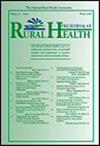The objective of this scoping review is to identify interventions to promote well-being that have been tried or proven effective to prevent or address burnout in rural health care professionals and trainees (HCPTs). Secondarily, we aimed to identify potentially applicable and feasible well-being interventions that could help rural HCPTs.
We used PRISMA guidelines to conduct a scoping review of peer-reviewed English language studies, from all countries, published in core health sciences databases. We focused on intervention studies for burnout and well-being in rural HCPTs published from July 2013 to January 2024. Searches identified 571 studies; 18 additional studies were identified from hand searches of websites, reviews, and bibliographies identified in the original search strategy. Two authors screened and extracted all data using Covidence.
After deduplication, 507 studies were screened for inclusion, and 50 full-text studies were assessed for eligibility. After discussion and consensus, 30 studies were selected for inclusion. We included selected “applicable” studies, for example, online interventions. We excluded potentially applicable studies that would not be feasible in rural settings, that is, health system interventions requiring substantial personnel and infrastructure. Interventions included individual interventions (eg, mindfulness), increased support for professionals (eg, remote pharmacist assistance), and interventions to improve quality or teamwork.
Few interventional studies have been done to support well-being and prevent burnout in vulnerable rural HCPTs. While individual interventions, such as mindfulness, are most effective to date, studies replicating or extending these interventions, and to identify supports that address workload and systems issues are needed.



